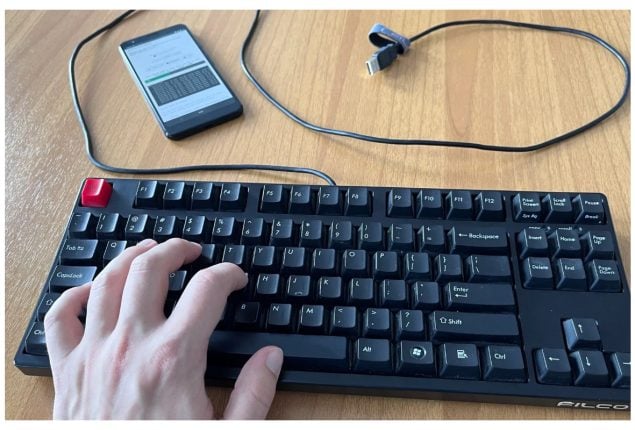Threads is getting more features to make it more useful
Meta's Twitter alternative, Threads, is getting new features this week. Users value...

AI can steal your passwords by listening to your typing sounds
Laptop users are facing a new threat to their privacy as hackers can now potentially access confidential data like private messages, passwords, and credit card information through the sound of their typing.
A recent study conducted by British university researchers has highlighted the alarming fact that artificial intelligence can accurately detect keystrokes solely through sound cues, achieving an impressive 95% accuracy rate. This discovery raises concerns about the increasing sophistication of such attacks due to the rapid advancement of AI technology.
The research paper focuses on “acoustic side channel attacks,” a term used to describe instances where malicious actors utilize auxiliary devices, like a nearby cell phone or an open microphone on platforms such as Zoom, to capture the sound of typing as auditory input.
Following the capture of this sound, it is then fed into a deep-learning AI model that has been specifically trained to recognize the unique acoustic patterns of different keystrokes. This process enables the AI to decipher the content of the typed text accurately.
Through this approach, the researchers effectively detected keystrokes made on a MacBook Pro by analyzing the sound using a nearby mobile phone. Remarkably, they achieved a success rate of 95%. Likewise, when examining a recorded Zoom call, the accuracy of keystroke identification remained concerning at 93%.
The paper says: “With the recent developments in both the performance of (and access to) both microphones and DL models, the feasibility of an acoustic attack on keyboards begins to look likely.”
To prevent such attacks, it’s advisable to opt for stronger passwords that incorporate a mix of uppercase and lowercase letters. This approach confounds AI’s ability to accurately decipher the combined keystrokes. Additionally, passwords composed of random combinations of numbers, letters, and special characters are more resilient against cracking compared to easily recognizable full words.
To enhance security, implementing two-factor authentication and biometric verification can provide added protection. However, the research paper cautions that as AI advances, it might potentially overcome various other security safeguards in the future.
To stay informed about current events, please like our Facebook page https://www.facebook.com/BOLUrduNews/.
Catch all the Sci-Tech News, Breaking News Event and Latest News Updates on The BOL News
Download The BOL News App to get the Daily News Update & Follow us on Google News.